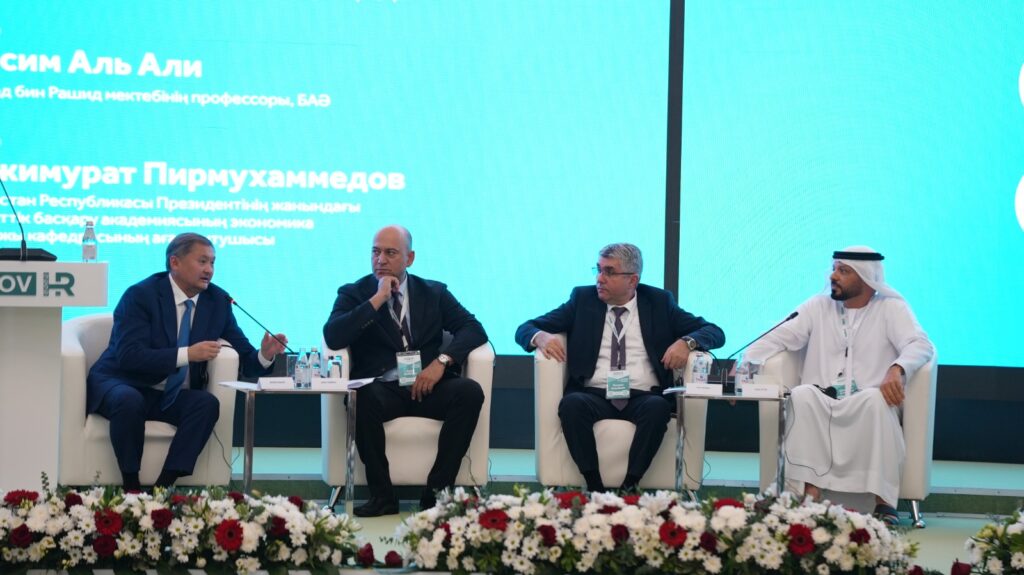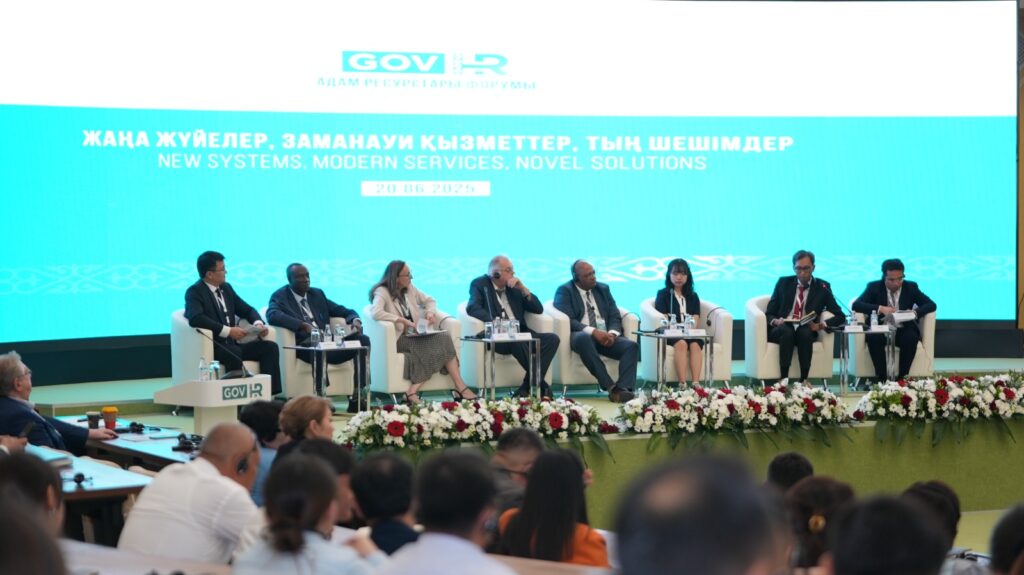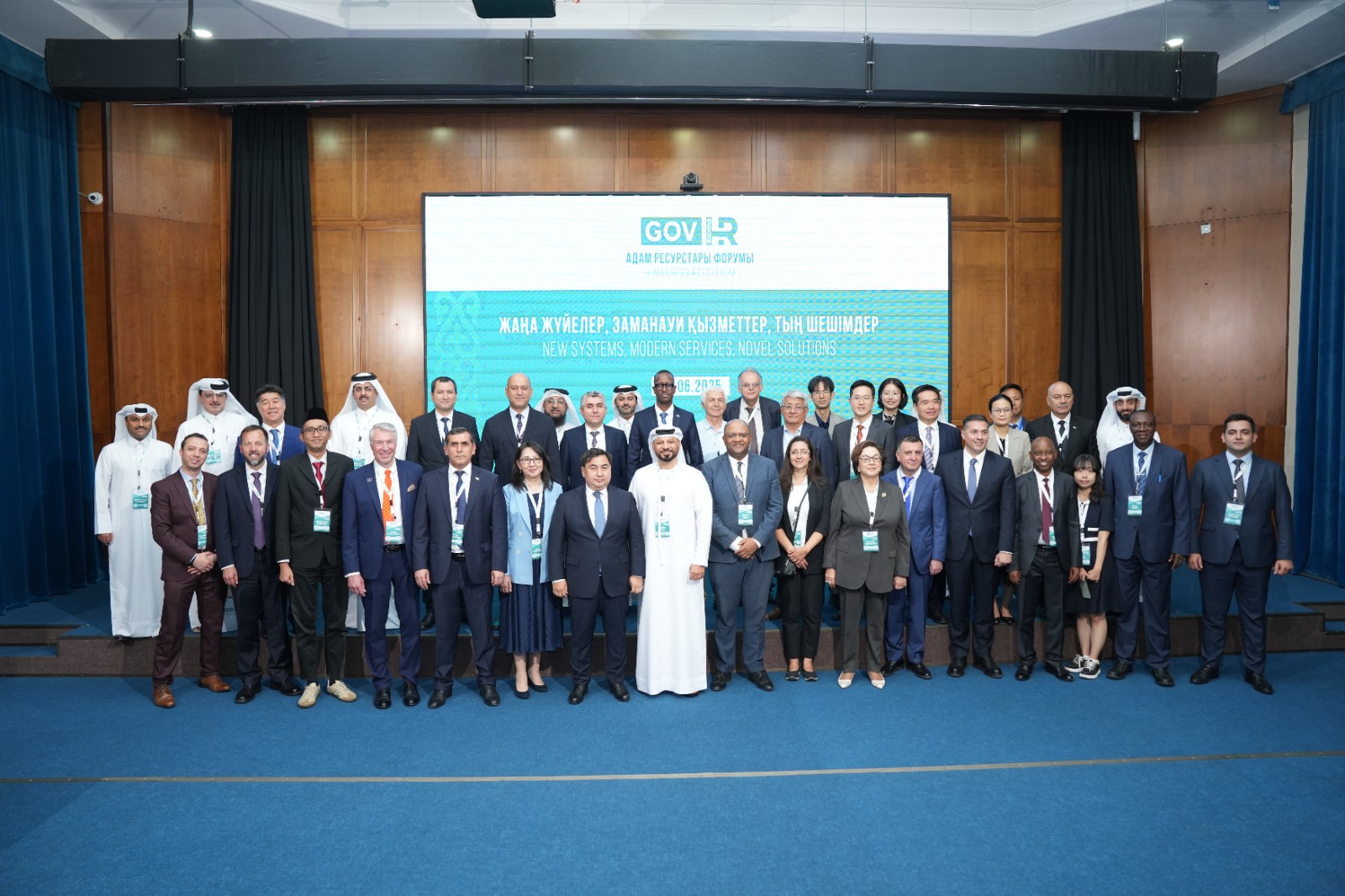On June 20, 2025, under the auspices of the Agency for Civil Service Affairs, the international GovHR Forum was held, dedicated to key issues of human resource management in the civil service system. The event was held at the Academy of Public Administration under the President of the Republic of Kazakhstan and became a unique platform for sharing best practices and developing joint solutions for the transformation of public administration in the era of global challenges.
In order to share experience, the Forum brought together representatives from the UN and heads of authorized agencies from partner countries: Acting Director General of the Civil Service and Government Development Bureauin the State of Qatar – Saif bin Ali Al Kaabi, Chairwoman of the Civil Service Council of Mongolia – Tsedvsuren Lkhagva, Director General of the Human Resource Management Office of Sierra Leone – Ansu Tucker, Director of the Civil Service Agency under the President of the Republic of Tajikistan – Ilyos Idriszoda, as well as leading specialists in human resource management from Azerbaijan, Kyrgyzstan, Morocco, UAE, Russia, Rwanda, Singapore, the USA, Turkmenistan, Uzbekistan, and South Korea.
Chairman of the Agency for Civil Service Affairs, Darkhan Zhazykbay, opened the forum by reading a congratulatory message from the President of the Republic of Kazakhstan, Kassym-Jomart Tokayev. The message emphasized that the modernization of the civil service system has always been based on the fundamental principle: “The state exists for the people, not the people for the state.”
Darkhan Zhazykbay stressed that the main theme of the forum was the development of an effective, human-centered human resource management system in the public sector. The discussions focused on four key areas: building a strategic HR system, digitalization and AI integration into HR policies, support for young professionals, and the transformation of leadership roles in government bodies.

During the forum, Kazakhstan was particularly interested in the successful practices of partners, such as Qatar’s systems Kawader – a recruitment platform for the public and private sectors, and Ada’a – a performance management system enabling goal setting, monitoring, and evaluation of SMART goals for over 85,000 civil servants. In Mongolia, appointment and personnel registry processes are automated through a specialized portal, and a pilot AI module has been launched to analyze resumes and conduct preliminary candidate screening.
Special attention at the forum was given to international cooperation with key global organizations. In a video address to forum participants, Chair of the UN International Civil Service Commission (ICSC) and UN Assistant Secretary-General Larbi Djacta noted that Kazakhstan demonstrates a progressive approach to HR policy and could become a model for other countries.
Following the discussions, panels, and foresight sessions, the GovHR resolution was adopted, containing key recommendations and benchmarks for the development of civil service and human resource management systems. It specifically recommends phased integration of AI, Big Data, cloud solutions, and blockchain technologies to increase public administration efficiency and improve citizen services. The importance of unified data management, reducing bureaucratic barriers, enhancing cybersecurity, and actively applying People Analytics in HR decision-making was highlighted.
Additionally, foresight session participants proposed the development of new HR models, including a “2030 Competency Map,” “Data Policy,” and “HR Archetypes 2035.” The need to transition to individualized, practice-oriented training with an emphasis on digital skills was also noted.
According to participants, the forum became not only a platform for knowledge exchange but also an important step toward building a professional community in civil service capable of implementing cutting-edge solutions that meet contemporary challenges.

